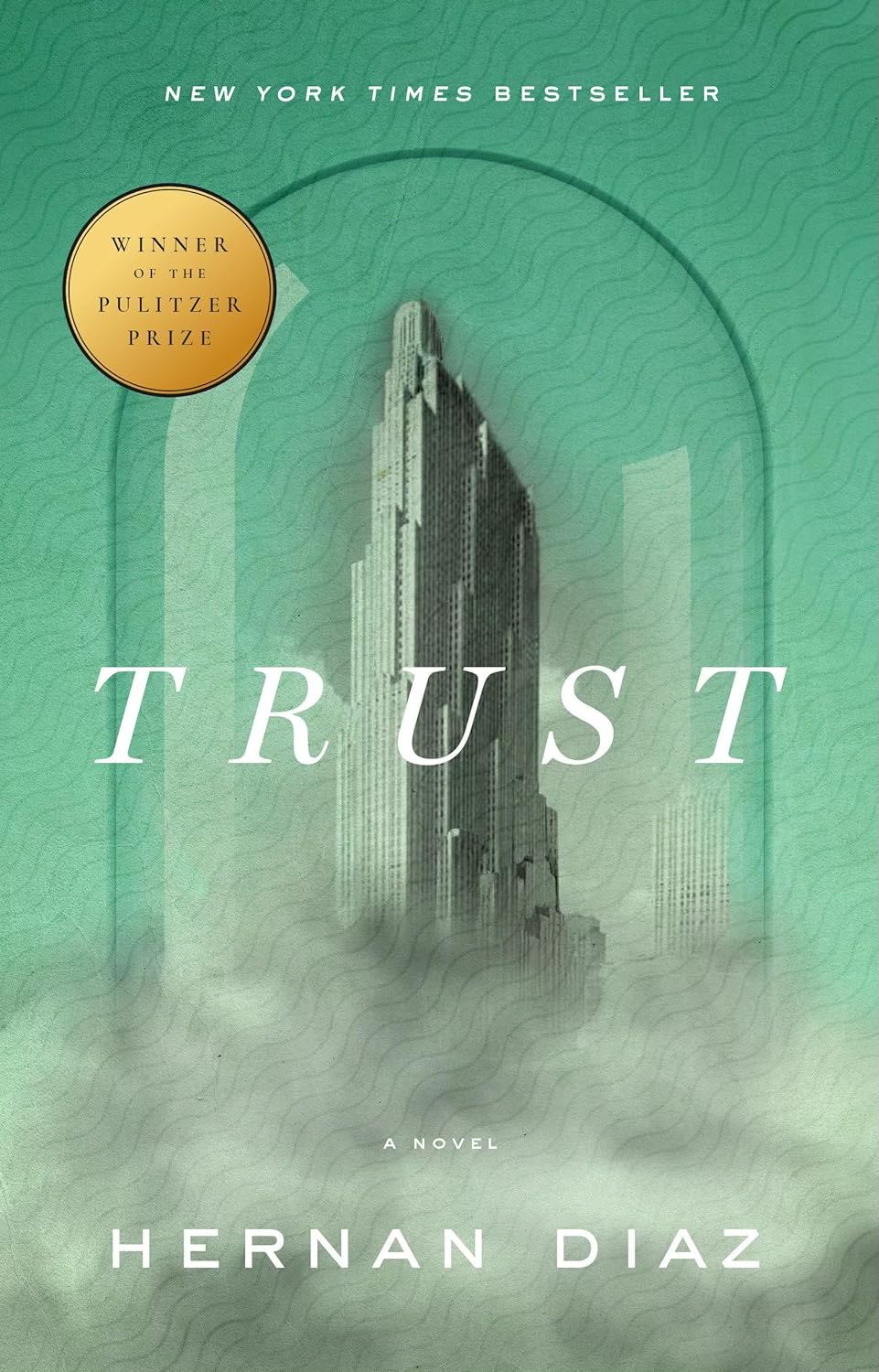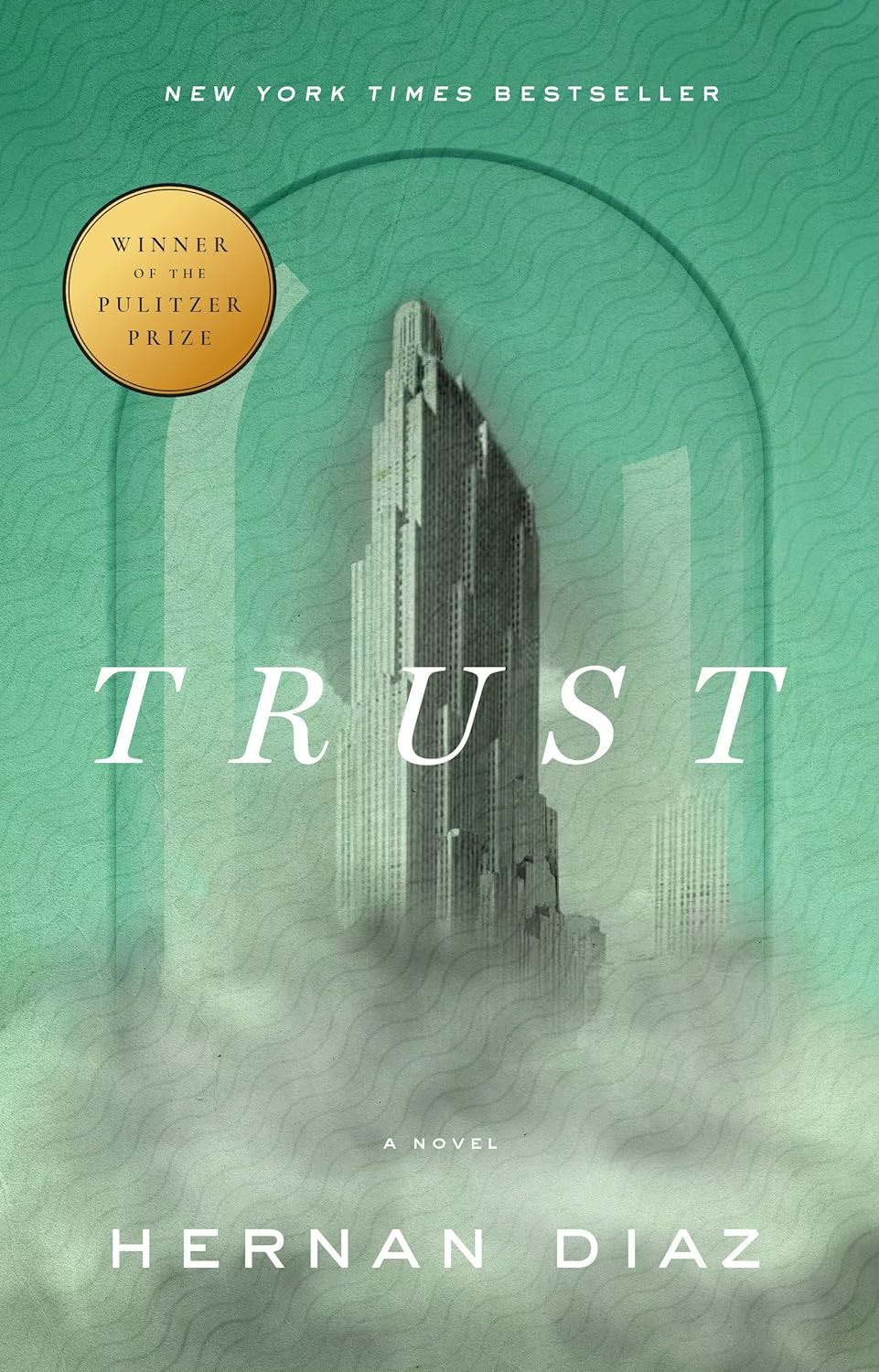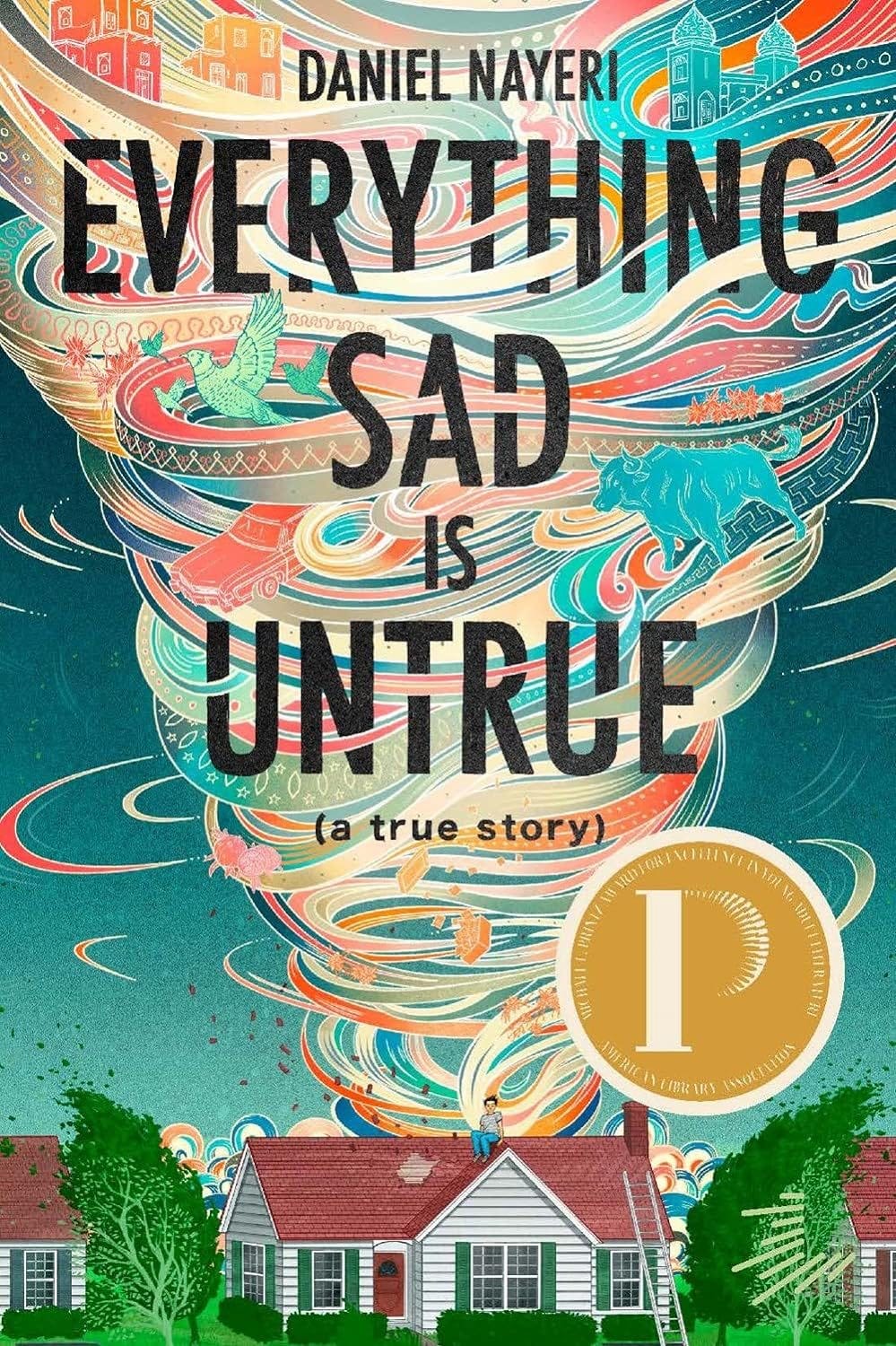Welcome to Reading Revisited, a place for friends to enjoy some good old-fashioned book chat while revisiting the truth, beauty, and goodness we’ve found in our favorite books.
Before we start I need to warn you that I am assuming you have read this section in its totality before reading this Read Along Guide. So if you have not finished Part 3 yet, go do that and then come back and read this! I will be spoiling anything that Ida spoils!
Let’s jump in…
A Memoir, Remembered
by Ida Partenza
We are going to learn a lot about how the novel fits together during Ida’s section, so below I will give you some thoughts as I am reading and then we can revisit some important clues and themes at the end.
Structure
I want to start by doing a very
thing. Let’s look at structure. This part of the book begs for it. I was surprised when I noted what Ida narrates in each chapter. Once I started writing it down I realized that she goes every other chapter between Bevel and home/personal life. By the end of Part III the lines definitely blur.I- 10 chapters
II- 9 chapters
III- 11 chapters
IV- 1 chapter
Why does the last section only have the one chapter? Is this a nod to the rest of the book? Ida’s book is the longest, followed by Vanner’s, then Bevel’s, and then Mildred’s? That is a theory…I would love to hear your theories and thoughts on the structure!
I
In this first section (which is 10 chapters long) we meet Ida, an Italian immigrant, who is now an old woman going back to the Bevel house after years of avoiding it. We quickly find out that she has a history with the family in some way and the only reason she is going back now is because she wants to look at the family’s papers.
We then go back in time and are told the story of her interviewing and getting a job with Andrew Bevel (after Mildred’s death). This story is interspersed (see structure above) with Ida’s family history and home life. Her father is an anarchist and has a lot of opinions about Wall Street. We also meet her boyfriend(?) Jack, a journalist.
Upon getting the job Bevel tells Ida that her real job will be helping him right his story, which we assume is the unfinished autobiography in Part 2. He also admits that he is writing this in response to Bonds by Harold Vanner. So if you hadn’t put this together yet (which I hadn’t on my first read), yes, in spite of some glaring differences in their stories, Benjamin Rask is a fictionalized version of Andrew Bevel.
“Everyone I know seems to have read it; everyone is still talking about it. I’m not a critic. I’m not interested in literature. I haven’t even read the reviews. But I can tell you why this book is such a sensation: because it’s patently about my wife and me. And because it makes us look bad.”- Andrew Bevel (236)
II
In this next section we are still with Ida in the present day going to the library of Bevel house and asking to see Mildred’s papers.
We then go back in time again and follow Ida in her first days working for Bevel. This section again alternates between Ida being with Bevel and at home/with her family. In the sections with Bevel they are writing the parts of the memoir about his family, Mildred, and then they talk about Harold Vanner.
At home we witness a lot of conflict between Ida and her father and Jack. All of the conflict centers around her job working for Bevel (which she hasn’t even told them who he is). By the end of the section Jack has apologized (and cleaned the house) while her Father and her make up only after she tells him a lie about her work.
Even if I told myself that I was protecting us both with these stories, I felt like a traitor. Instead of being loyal to my father, I had sided with one of his sworn enemies. (292)
III
This section begins, again, with Ida in the present day going through Bevel’s archives. Everything she finds about Mildred makes Ida suspect that there was more to this woman than Bevel (or even Vanner) let on.
Back in the past we meet a new character that wants to blackmail Ida into giving information about Bevel. She decides against telling Bevel and instead writes a fictional story to give the blackmailer. She then discovers that someone has stolen pages of her book. She suspects Jack.
When she goes to see the blackmailer she quickly realizes that it is all a sham. Jack has sent this man to scare her into giving him information for his first big story. Ida threatens him with Bevel’s power and Jack leaves town.
Back at Bevel’s Ida lies to the housekeeper in order to see Mildred’s rooms. She steals a used blotting paper on the way out.
She goes to dinner at Bevel’s (this is where the structural pattern of the chapters seems to break down). She is at home and it “should” be a home chapter. But she is whisked away in a limo to Bevel’s who then offers(?) her a new apartment so she can come to work more easily in the off hours. I do not think it is an accident on Diaz’ part that the structure of the home/work chapters breaks down here.
Bevel dies very shortly after Ida moves into her apartment. She quarrels with her father and then makes up. I’m not sure where that leaves us on the home/work pattern. Or should it be Bevel’s world vs. the real world?
IV
In this final section of Ida’s book we are back in present day. A small notebook falls out of another book. This detail seems significant within this novel of books in books. It is the mysterious book that Ida has been looking for: Mildred Bevel’s journal. Actually, more specifically, Futures by Mildred Bevel. And just like that we know where we are going in the last part of the book. Ida steals it and is very conflicted about her motivations. I am also left with a lot of questions.
Themes
Let’s look at some “notes and quotes” about some of the themes we have been thinking about. I don’t have full theories worked out for everything here, but I think it will be helpful to bring these themes to the front of our minds before finishing the book.
Dopplegangers/Mirrors
Ida’s father and the poet they make fun of
Ida’s father, Andrew Bevel, and Helen’s dad
Ida’s father and Bevel both forbid her from repeating their lives’ details to anyone. And it causes her anxiety and excitement both times.
Ida is also an avid detective fiction reader. Does this make her like Mildred? But wait, Ida wrote that…
“(The money) smelled just like my father.” (261)
The backwards words on the blotter that Ida steals from Mildred’s rooms. Inverted truth?
Ida and Mildred
Who knows Mildred better than I? Didn’t I even forge her past out of my own? Are we not then, in some oblique way, connected? (357)
Masks/Hiding
The Bevels showing up as ciphered versions of themselves in Ida’s novels
Ida’s fake name she gives at interviews (which Bevel very easily sees through)
I think we can also put the detective fiction reading here. Why is the same story here and in Bevel’s book. Who is taking whose story?
Bevel’s face…
Up close I discovered that Bevel’s face was almost two faces: the surprising boyishness of the upper half, with its very blue eyes and almost imperceptible freckles, was rebuked by his thin lips and exacting chin. (234)
Mildred has almost illegible handwriting…we are left with Ida trying to decipher the information we have as well.
The disappearing pages and disappearing people (Vanner and Jack mainly)
The relationship between history and fiction/fact and fabrication (Diaz’ phrases)
Ida’s father is said to be “a spirited storyteller who seldom hesitated to sacrifice truth for effect” (208)…I am also looking to see if this tendency is in Ida since we have seen so many offspring mirror their parents.
Ida literally lies in order to get the job with Bevel (about her name and her story)…should we trust her?
“You also have a penchant for storytelling that may come in handy.”- Andrew Bevel (238)
Ida is reading Bonds (a fictional novel) like it is a detective novel and she is the detective.
Of course there was no way for me to tell fact from fiction back then (and even after all my subsequent meetings with Bevel this distinction would still remain unclear)…Why would someone as powerful and busy as Bevel go through the trouble of challenging a piece of literature? (245)
Bevel admits that he must always be right or reality must change…
“My job is about being right. Always. If I’m ever wrong, I must make use of all my means and resources to bend and align reality according to my mistake so that it ceases to be a mistake.” (266)
Ida starts writing a fictional Bevel (when she realizes that he doesn’t like the way he sounds in reality). She then starts writing another fictional Bevel for the blackmailer. The layers of this make it so fascinating!
Like Victor Frankenstein’s creature, my Bevel would be made up of limbs from all these different men. (270)
The disorganization of the Bevel files leads me to think that it is hard to decipher the truth in history. It starts to make sense how there can be so many versions.
Women
After Bevel so adamantly states that women shouldn’t be in the finance world (in Part 2) I was half laughing and half incredulous that he has so many women working for him (especially on the counting machines).
Bevel seemingly shoving Mildred to the background of the story…
“This is to be my story…Besides, Mildred was extremely reserved…I very much doubt they could throw any light on Mildred’s character. For that you have me.” (279)
With each crossed-out paragraph or toned-down sentence my sense of betrayal deepened. (286)
No one ever spent time with Mildred Bevel’s papers before Ida (295).
Mildred and Ida have to learn on their own because they are women.
Both of us it seems, had to create our tools and systems to tackle jobs for which we received no formal education. (301)
“Money’s ability to distort reality” (Diaz quote)
Ida’s dad’s views on money in general, but I will leave you with a few quotes.
…despite all that steel and concrete—Wall Street was, he said, a fiction.
“…So if money is fiction, finance capital is the fiction of fiction. That’s what all those criminals trade in: fictions.” (216)
Money’s ability to solve problems…I am specifically thinking of the irony that money is what patches up Ida and her father’s relationship at the end of the book.
“Wait,” he said. “There is a solution. Money.” (353)
Home/Office Back and Forth
I am interested in the way the structure of this memoir seems to be very strictly between home and office. But then the lines get a little bit blurred because sometimes she goes to Bevel’s home or office. And eventually her home becomes the apartment paid for and furnished by Bevel. The lines get blurrier and blurrier as we go…
“I think the conversation, as you called it, will flow better in a less office-like setting.” (259)
Clues
Vanner isn’t read at Ida’s college because his work was out of print and “already unavailable”
The detective mystery scene is almost identical in My Life (Bevel’s memoir) and A Memoir, Remembered (Ida’s)
“Lucidity…is the best hiding place for deeper meaning.” -Ida’s impression of Vanner’s novel (246)
“He had obviously taken all sorts of liberties with Mildred Bevel’s story and could have given her any kind of fate. Why, then, this? Why break her mind? (248)
Mildred’s different portrayals in the different sections of the book.
Harold Vanner’s name is in Mildred’s calendar.
Quotes
Greedily, comically, the building claimed all of history for itself—not just the past but also the world to come. (200)
Later, when I finally went to college, I would be able to trace Vanner’s literary influences and consider his novel from a formal point of view…back then I had never experienced anything like that language. And it spoke to me. It was my first time reading something that existed in a vague space between the intellectual and the emotional. Since that moment I have identified that ambiguous territory as the exclusive domain of literature. (246)
“Look, I’m not going to ask you to trust me. I’m not going to give you names you have no use for, just to make you feel good. I’m not going to say anything to appease you.”
Is this the post to mention The Man by Taylor Swift? Maybe not yet…
Questions I Am Asking
Is Ida a good writer? Is this book good on its own merits?
Is Bevel, in justifying himself, actually admitting defeat? (I’m referencing the quote on page 220 and his quote from Part 2)
Why is Mildred portrayed so differently by her husband, Harold Vanner, and her papers that Ida finds?
Do we trust Ida? Does she just have her own baggage? Or is that the point? Do all historians have their own biases and we have to sort through it all?
What are we going to learn in Part 4 and how will if affect everything we already know?
Reading Schedule
Friday, May 16th- Introduction and Reading Schedule
Monday, May 19th- ep. 55: Introduction to Trust w/ Sean Johnson (from Close Reads)
Wednesday, May 21st- Bonds by Harold Vanner (pgs 3-126)
Wednesday, May 28th- My Life by Andrew Bevel (pgs 127-192)
Wednesday, June 4th- A Memoir, Remembered by Ida Partenza (pgs 193-360)
Wednesday, June 11th- Futures by Mildred Bevel (pgs 361-402)
Thursday, June 26th- Trust Virtual Book Club (contact us for a link to the zoom meeting)
Monday, July 7th- ep. 63: Revisiting Trust
Until next time, keep revisiting the good books that enrich your life and nourish your soul.
In Case You Missed It:
On the Podcast:
What We’re Reading Now/Next:
June
Trust by Hernan Diaz
July
August
Northanger Abbey by Jane Austen
A Few Reminders:
If you are wanting to get in on the in person or virtual community please contact us!
We have turned on paid subscriptions which will allow you to support the work we are doing here as well as receive Read Along Guide PDFs each month and voice recordings of the Read Along Guides.
If you would like to make a small contribution to the work we’re doing here at Reading Revisited, we invite you to do so with the Buy (Us) a Coffee button below. We so appreciate your support!
*As always, some of the links are affiliate links. If you don’t have the books yet and are planning to buy them, we appreciate you using the links. The few cents earned with each purchase you make after clicking links (at no extra cost to you) goes toward the time and effort it takes to keep Reading Revisited running, and we appreciate it!










I love the point you brought up about the home/office structure of Ida’s section, and how it begins to break down. I want to reread it already with that in mind!
Can I just say how upset I am that the piece of Bevel's memoir that really resonated with me was actually a plagiarized memory, hard work on the part of a ghostwriter just clipped and copied to satiate his own conscience? That it was *that easy* for him to think it was him... also that he assigned this kind of project to someone who was relatively inexperienced and expected so much of her. Not that Ida didn't rise to the occasion, but he clearly understands as little about the craft of writing as he does about his own marriage... imagine. "All I need is a secretary."
I'm now pretty convinced that he's bad, but I'm wondering if the fourth part will elucidate what type of villain exactly, whether he's careless or devious? WHICH IS WORSE?
You guys have the best picks. Can't wait to see what happens